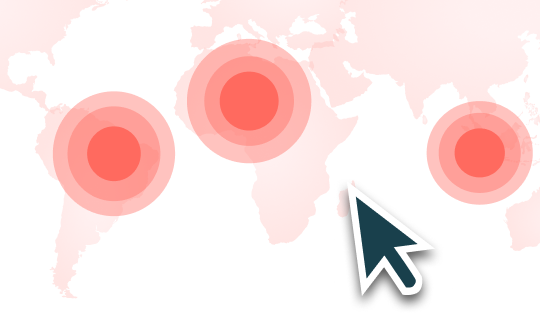Mato Grosso is Brazil's largest beef-producing state, representing 15% of the country's total beef production and 22% of its exports, and therefore plays a key role in Brazil’s agribusiness economy. The state has the highest gross value of agricultural production (GVAP) in Brazil, reaching US$14 billion in 2023, with cattle ranching alone accounting for 20% of Mato Grosso’s total GVAP. The state also boasts the second-largest pasture area in Brazil, encompassing 21 million hectares (ha) in 2022, around 12% of the country's total pasture area.
However, around 5.2 million ha (or 18%) of these pastures are severely or highly degraded, and an additional 4.3 million ha (or 30%) have intermediate levels of degradation. Beyond the immediate ecological concerns, the widespread degradation of pastures in Mato Grosso poses significant risks to both carbon emissions and agricultural productivity, jeopardising the export capacity of beef from Mato Grosso in the face of increasing international demand, especially from China.
Degraded pastures not only release stored carbon into the atmosphere, contributing to climate change, but also impede the ability of the land to sequester carbon effectively. The decrease in pasture productivity places a strain on the agricultural sector, greatly reducing the cattle stocking of pastures. Addressing pasture degradation in Mato Grosso is therefore crucial for environmental sustainability and for the long-term resilience and productivity of the region's agricultural landscape.
Pasture degradation is concentrated in the south of Mato Grosso
Although pasture degradation occurs across the whole state of Mato Grosso, the issue is particularly acute in specific regions. With 141 municipalities showing some degree of degradation, half of all degraded pastures are concentrated in fewer than 50 municipalities, predominantly in the south. Key municipalities like Vila Bela da Santíssima Trindade, Porto Esperidião and Itiquira exhibit a large amount of severely degraded pastures. In 2021, these municipalities were responsible for 53,433 tonnes (or 11%) of the state’s beef exports, while encompassing 7% of the degraded pasture area. This insight presents an opportunity to focus incentives, interventions and resources on areas where they can make a substantial impact.
A handful of companies and countries are linked to areas with a critical pasture recovery needs
Our analysis shows that JBS, Marfrig and Minerva, the three leading meatpackers, are the main traders sourcing beef from regions in Mato Grosso with larger concentrations of degraded pastures, while China, Egypt and the European Union are the main export destinations. These players are vital for channelling investments towards pasture restoration in Mato Grosso. By using their significant influence, these meatpackers, along with their primary markets, can drive sustainable practices and technological advancements in pasture-recovery efforts.
In 2020, JBS, Marfrig and Minerva dominated beef exports that originated in municipalities with significant areas of degraded pastures in Mato Grosso with extreme to intermediary need of intervention, collectively accounting for a substantial volume of 150,644 tonnes of beef. JBS held the largest share with 41%, followed by Marfrig at 27% and Minerva at 13%, cumulatively representing 81% of beef exports.
China, including mainland China and Hong Kong special administrative region, emerged as a significant market, receiving 68% (125,572 tonnes) of Mato Grosso’s beef exports from municipalities with degraded pastures with extreme and high intervention needs in 2021. This indicates that a considerable proportion of China's beef imports are sourced from areas experiencing significant pasture degradation and requiring efforts towards pasture recovery.
Investment in pasture recovery could boost production without deforestation in Mato Grosso
Investing in pasture recovery could accelerate the transition to net-zero beef production in Mato Grosso. This can be achieved by enhancing the carbon storage capacity of pastures and reducing the need to expand pastures into native vegetation. A recent study suggests that the technical efficiency of Brazilian cattle farming is on average 81% of what could potentially be achieved.
It is imperative for stakeholders, including exporting companies and importing countries, to recognise the need for investment in pasture recovery initiatives in Mato Grosso. As the largest beef producer and second-largest exporter in Brazil, Mato Grosso plays a pivotal role in the global beef market. The significant environmental challenges, particularly pasture degradation and its repercussions for carbon emissions and agricultural productivity, underscore the necessity for collaborative efforts to support sustainable practices.
Currently, Brazil is taking significant steps to boost investment in agricultural production on degraded pasturelands. The program for the Conversion of Degraded Pastures into Sustainable Agricultural and Forestry Production Systems (PNCPD) aims to restore 40 million hectares of degraded pastures by offering low-interest loans to small and medium-sized farming businesses. Private companies such as JBS are also investing. The company reports that it has supported over 19,000 farms since 2021 through facilitated credit for the improvement of management techniques for beef production.
By channelling resources into pasture recovery for low-carbon production, stakeholders can not only mitigate environmental impacts, but also ensure the continued success and resilience of Mato Grosso's agricultural landscape with no need to open new land for cattle production. This strategic investment will not only benefit the region, but also contribute to a lower impact global beef supply chain.
To reference this article, please use the following citation: Pereira, O., & Vasconcelos, A. (2024). Mato Grosso's path to net-zero: Tackling pasture degradation for enhanced beef exports. Trase. https://doi.org/10.48650/Y8NN-Q508
Was this article useful?





